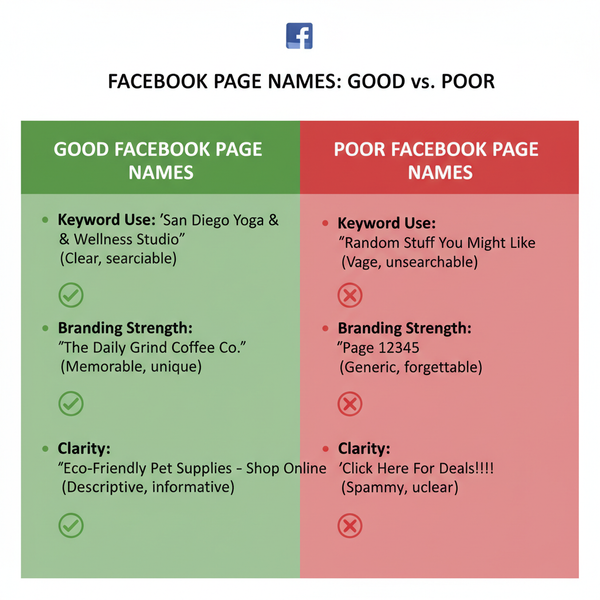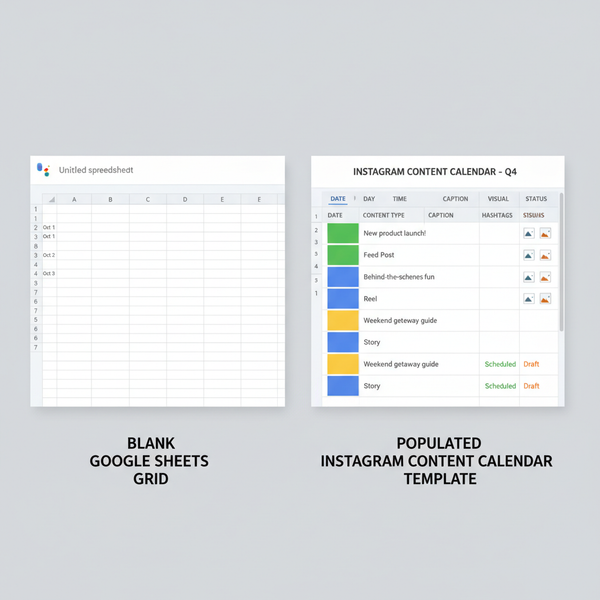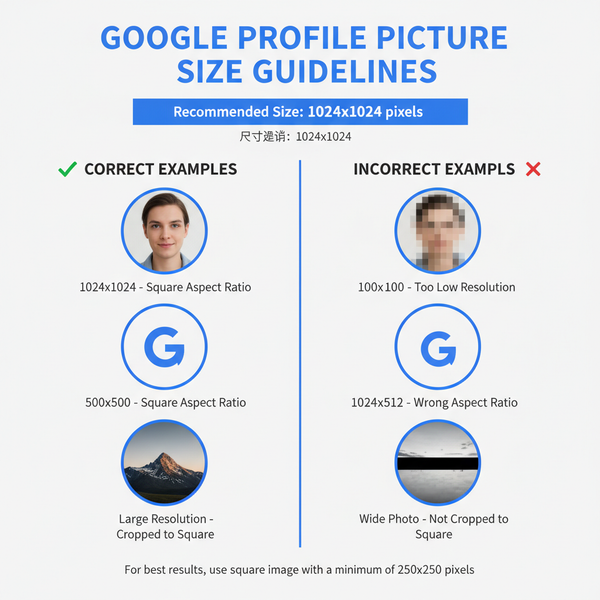LinkedIn Impressions Benchmarks and Engagement Tips
Learn what counts as good LinkedIn impressions, see industry benchmarks, and discover strategies to boost reach and engagement across network sizes.
Understanding LinkedIn Impressions
If you’re wondering how many impressions on LinkedIn is good, it helps to first understand what LinkedIn impressions actually mean. In LinkedIn analytics, impressions are a metric that measures how many times your content was displayed on someone’s screen. This doesn’t necessarily mean the user engaged or clicked on the post — only that it appeared in their feed or search results.
LinkedIn counts an impression when:
- Your post is loaded in a user’s feed (even if they don’t scroll to read it fully)
- Your article or video preview shows up in search or within a group thread
- Your update appears in a notification panel
Impressions are an essential top-of-funnel metric, showing your potential content reach and establishing the baseline for performance.
---
Average Impression Benchmarks by Industry and Network Size
A common question is: What is a good number of impressions? The truthful answer varies by industry, content type, and network size.
Below are approximate benchmark ranges compiled from marketing reports and LinkedIn analytics studies:
| Industry | Small Network (<1K connections) | Medium Network (1K–5K) | Large Network (>5K) |
|---|---|---|---|
| Marketing/Advertising | 200–800 | 1,000–3,500 | 5,000–15,000 |
| Technology | 150–600 | 900–3,000 | 4,000–12,000 |
| Professional Services | 100–500 | 800–2,500 | 3,000–9,500 |
| Healthcare | 80–400 | 600–2,000 | 2,500–8,000 |
These ranges are estimated averages. High-performing posts can exceed them, especially if you create viral content or drive targeted engagement from a relevant audience.
---
Impressions vs. Views, Clicks, and Engagement
Understanding the difference between LinkedIn metrics helps interpret your performance data correctly:
- Impressions: Number of times your content was shown on a screen.
- Views: For articles or videos, a view means the user clicked and opened the content.
- Clicks: User clicked a link, image, or CTA.
- Engagement: Reactions, comments, and shares.
Tip: Engagement metrics highlight audience interest. Impressions show content distribution — you often need both for sustainable growth.
---
Factors That Influence Impressions
Your LinkedIn post can either soar or sink depending on several factors:
- Post Timing
- Posting during peak hours (8–10 AM weekdays) often boosts visibility.
- Content Type
- Visuals and videos generally attract higher impressions.
- Hashtags
- Relevant, trending hashtags make posts more discoverable.
- Audience Relevance
- Niche-specific content gets algorithmic preference.
- Engagement Velocity
- Early likes and comments help push your post to more feeds.
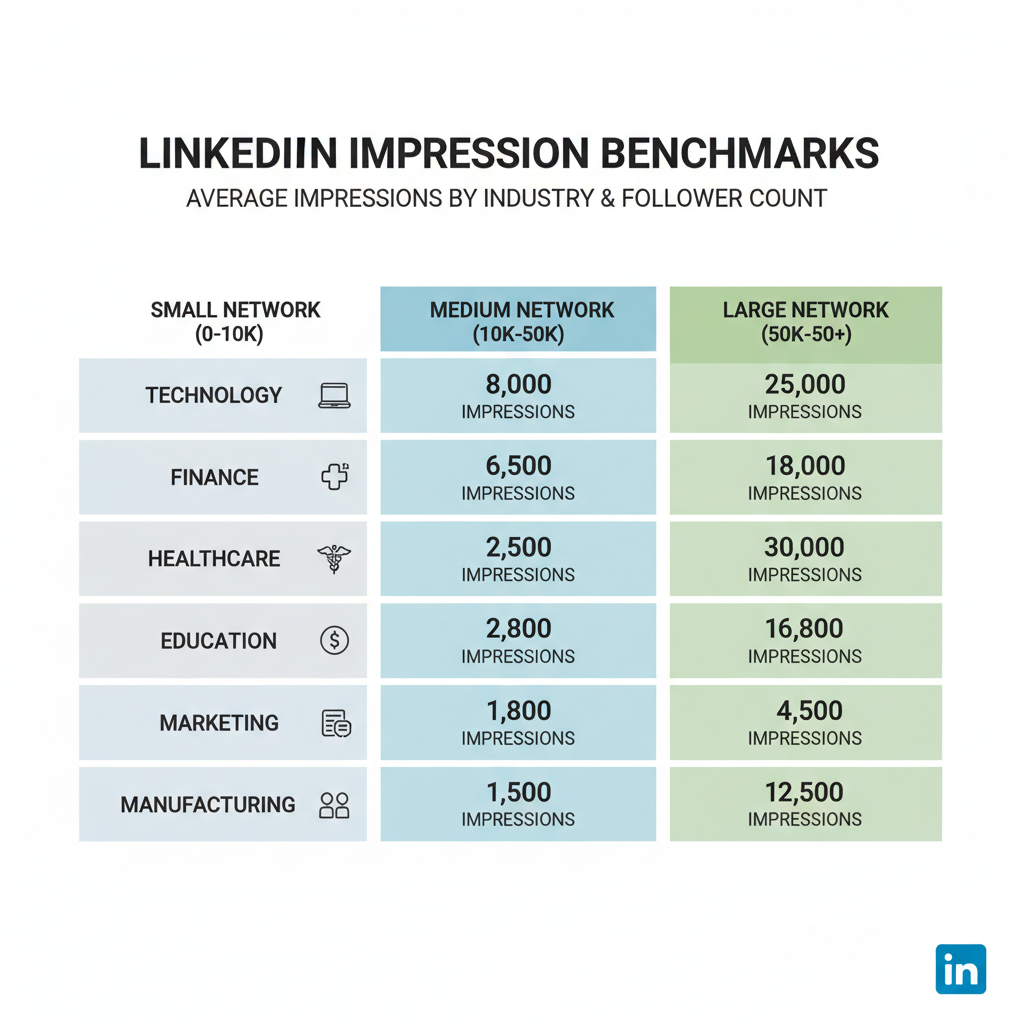
---
Calculating Impression Rate
The impression rate is a useful ratio for understanding reach relative to your audience size:
Impression Rate (%) = (Total Impressions ÷ Total Followers) × 100Example:
- 2,000 impressions
- 500 followers
(2000 ÷ 500) × 100 = 400%A rate above 100% means your content has reached beyond your followers — often from shares, trending hashtags, or non-followers encountering your post.
---
What’s “Good” for Different Account Sizes?
Benchmarks vary, but generally:
- Small accounts (<1K connections): >300 impressions is healthy, >500 is excellent.
- Medium accounts (1K–5K): 1K–2.5K impressions is solid; above 4K is strong reach.
- Large accounts (>5K): 5K–10K respectable; 15K+ indicates robust distribution.
Remember: High-quality content fuels engagement, which in turn boosts impressions.
---
Strategies to Increase LinkedIn Impressions
If your average impressions are below benchmarks, try these tactics:
1. Use Native Content
Upload images and videos directly to LinkedIn rather than relying on external links.
2. Run Polls
Polls drive fast participation and are algorithmically favored to wider audiences.
3. Publish Long-form Articles
LinkedIn’s native article platform rewards value-rich, well-written posts.
4. Comment Strategically
Engage with posts from others in your niche to gain reciprocal visibility.
5. Collaborate with Others
Co-author content or tag peers for audience cross-pollination.
---
The Importance of Engagement Alongside Impressions
High impressions without meaningful engagement may signal shallow reach. Engagement prompts LinkedIn’s algorithm to promote your content further.
A balanced post strategy should include:
- Clear CTAs
- Thought-provoking questions
- Insightful, actionable tips
---
Tracking Impressions Over Time
Seeing measurable improvement requires data tracking:
- Keep a spreadsheet of post dates, types, and metrics.
- Compare month-to-month performance.
- Identify spikes and analyze causes.
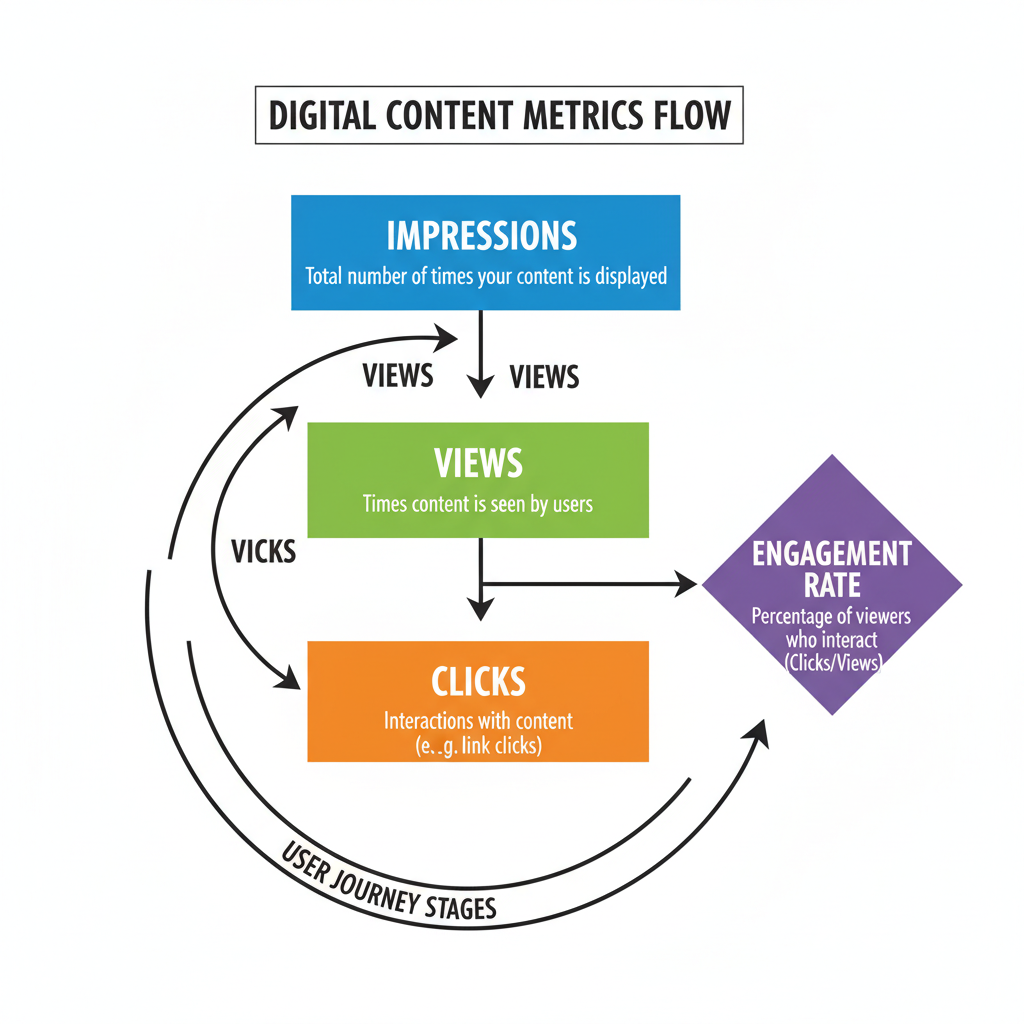
This allows you to double down on what works.
---
LinkedIn Tools and Analytics Features
LinkedIn offers native analytics such as:
- Impressions per post
- Engagement percentages
- Audience industry/job breakdown
- Follower growth statistics
Third-party tools like Shield Analytics add:
- Advanced filtering
- Content tagging and categorization
- Exportable performance reports
---
Pitfalls to Avoid in the Impression Game
While chasing numbers, beware:
- Clickbait headlines — Damaging credibility.
- Irrelevant content — Attracts the wrong audience.
- Over-posting — Causes audience fatigue.
- Ignoring engagement — Misses connection opportunities.
Avoiding these traps safeguards your reputation and maintains follower trust.
---
Conclusion: Balance Reach and Quality Engagement
So, how many impressions on LinkedIn is good? The answer depends on your network size, industry, and goals — but surpassing industry averages is a positive indicator. Remember, impressions alone don’t guarantee influence.
Prioritize:
- Consistent posting
- High-value, relevant content
- Authentic and timely engagement
By focusing on both reach and depth, you create sustained LinkedIn growth where impressions and meaningful interaction work together to enhance personal branding and business visibility.
Next step: Review your analytics for the past month, identify your highest-impression post, and replicate its winning elements for greater success.

